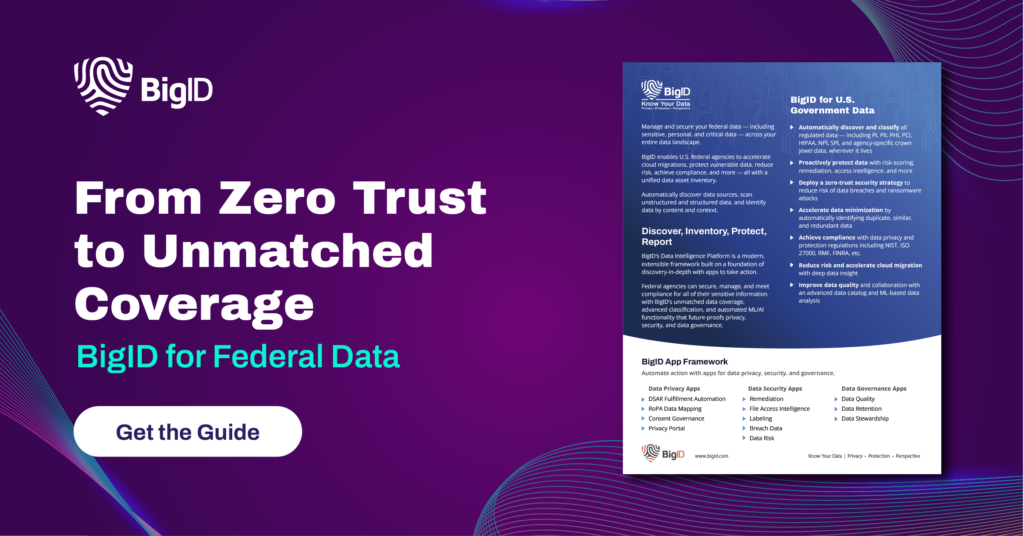DFARS Compliance for DoD Contractors: Best Practices

What is DFARS?
DFARS stands for Defense Federal Acquisition Regulation Supplement. It is a set of regulations used by the U.S. Department of Defense (DoD) to supplement the Federal Acquisition Regulation (FAR), which governs the acquisition process for federal agencies. DFARS is designed to provide additional guidance and requirements specific to defense acquisitions, including contracts, procurement, and subcontracting, to ensure that the DoD procures goods and services in a manner that promotes national security and supports defense objectives. DFARS is regularly updated and maintained by the DoD to comply with laws, regulations, and policies related to defense acquisition.
Why is it important?
DFARS is important because it provides essential regulations and guidelines for the U.S. Department of Defense (DoD) to acquire goods and services in a way that supports defense objectives and promotes national security. These regulations help ensure that the DoD conducts acquisitions in a transparent, accountable, and compliant manner. DFARS includes requirements related to contract award and administration, cybersecurity, intellectual property, small business utilization, and other critical areas.
By adhering to DFARS, the DoD can effectively manage its acquisitions, safeguard sensitive information, promote fair competition among contractors, and maintain the integrity and security of its supply chain. Compliance with DFARS is essential for contractors seeking to do business with the DoD, as it helps ensure that the acquisition process is carried out in a manner that aligns with defense priorities and protects national interests.
Who must comply?
All contractors, suppliers, and vendors who wish to do business with the U.S. Department of Defense (DoD) must comply with DFARS. Compliance with DFARS is mandatory for any entity that seeks to participate in DoD acquisitions, including prime contractors, subcontractors, and suppliers at all tiers of the supply chain. This includes both domestic and foreign entities that provide goods or services to the DoD, regardless of the size or type of business. Compliance with DFARS is a contractual requirement, and failure to comply may result in penalties, contract termination, and loss of business opportunities with the DoD. It is essential for all entities involved in DoD acquisitions to understand and adhere to the requirements outlined in DFARS to ensure their eligibility for DoD contracts and to maintain compliance with DoD acquisition regulations.
DFARS compliance requirements
Familiarize yourself with DFARS regulations: Contractors, suppliers, and vendors must thoroughly understand the DFARS regulations and requirements applicable to their specific contracts and acquisitions.
- Maintain cybersecurity measures: DFARS includes specific cybersecurity requirements, such as safeguarding controlled unclassified information (CUI) and reporting cybersecurity incidents to the DoD.
- Protect intellectual property (IP): Contractors must properly identify, protect, and report any IP associated with the performance of DoD contracts, including data rights, patents, trademarks, and copyrights.
- Comply with small business utilization requirements: DFARS includes provisions related to subcontracting with small businesses, including small business subcontracting plans and reporting requirements.
- Implement supply chain security measures: Contractors must ensure the integrity and security of their supply chain, including screening and monitoring suppliers and preventing the use of counterfeit parts or materials.
- Follow contract award and administration processes: Contractors must comply with the DFARS requirements related to contract award, administration, and reporting, including submission of accurate and complete cost or pricing data.
- Maintain records and reporting: Contractors must keep records and provide reports as required by DFARS, including documentation of compliance with various regulations and requirements.
- Stay up-to-date with DFARS changes: DFARS is regularly updated, and contractors must stay informed of any changes to ensure ongoing compliance with the latest regulations.
- Cooperate with DoD audits and investigations: Contractors must cooperate with DoD audits, investigations, and inquiries related to DFARS compliance, including providing access to records and information as requested.
- Maintain documentation and evidence of compliance: Contractors must maintain documentation and evidence of compliance with DFARS requirements, including contracts, reports, certifications, and other relevant records.

What does DFARS Compliance mean for DoD contractors
Compliance with cybersecurity requirements: DoD contractors must comply with cybersecurity requirements as specified in DFARS clause 252.204-7012, which mandates the implementation of adequate cybersecurity controls to protect covered defense information (CDI) and report any cybersecurity incidents.
- Safeguarding of Controlled Unclassified Information (CUI): DoD contractors must adhere to the requirements of DFARS clause 252.204-7012, which includes measures to safeguard CUI, such as marking, handling, storing, and transmitting CUI in accordance with applicable laws, regulations, and contract requirements.
- Implementation of security controls: DoD contractors must implement security controls specified in the National Institute of Standards and Technology (NIST) Special Publication 800-171, “Protecting Controlled Unclassified Information in Nonfederal Systems and Organizations,” which outlines security requirements for protecting CUI.
- Reporting of cybersecurity incidents: DoD contractors must promptly report any cybersecurity incidents, such as data breaches or unauthorized access, to the DoD, as specified in DFARS clause 252.204-7012 and any applicable contract requirements.
- Compliance with subcontractor requirements: DoD contractors must flow down the requirements of DFARS clause 252.204-7012 to their subcontractors who may have access to CDI or CUI, and ensure that subcontractors also comply with applicable cybersecurity requirements.
- Maintenance of documentation and records: DoD contractors must maintain documentation and records related to their compliance with DFARS cybersecurity requirements, such as system security plans, security assessment reports, and incident reports, as required by DFARS clause 252.204-7012.
- Compliance with additional DFARS clauses: DoD contractors must comply with other DFARS clauses related to data protection, such as DFARS clause 252.239-7010, “Cloud Computing Services,” and DFARS clause 252.204-7008, “Compliance with Safeguarding Covered Defense Information Controls,” which may impose additional requirements for protecting sensitive data.
It’s important to note that DFARS requirements for DoD contractors may vary depending on the specific contract, type of information being processed, and other factors. Contractors should consult with legal or compliance experts to ensure full compliance with DFARS and other applicable regulations.
What should you do if a DSARS security breach occurs
Notify appropriate parties: Contractors should immediately notify the appropriate parties, including the contracting officer, the DoD Chief Information Officer (CIO), and any other relevant stakeholders, about the security breach. This should be done in accordance with the contract requirements and any specific reporting protocols outlined in DFARS.
- Activate incident response plan: Contractors should activate their incident response plan, which should include predefined procedures for responding to security breaches. This may involve isolating affected systems, collecting evidence, and conducting forensic analysis to determine the extent and impact of the breach.
- Implement mitigation measures: Contractors should implement immediate mitigation measures to contain the breach and prevent further damage. This may involve patching vulnerabilities, changing access credentials, disabling compromised accounts, and taking other measures to prevent the unauthorized access or exfiltration of data.
- Preserve evidence: Contractors should take steps to preserve evidence related to the security breach, such as logs, system snapshots, and other relevant data. This evidence may be needed for forensic analysis, reporting, and potential legal proceedings.
- Report to DoD and affected parties: Contractors should report the security breach to the DoD and affected parties, as required by DFARS and any contractual obligations. This may include providing detailed information about the nature and scope of the breach, as well as steps taken to mitigate the incident.
- Cooperate with investigations: Contractors should fully cooperate with any investigations conducted by the DoD or other relevant authorities. This may involve providing access to systems and data, assisting with forensic analysis, and providing information and documentation as needed.
- Review and update security measures: Contractors should review and update their security measures to prevent similar security breaches in the future. This may involve revisiting and strengthening cybersecurity controls, updating policies and procedures, and conducting additional training and awareness programs for employees.
- Communicate with customers and stakeholders: Contractors should maintain open and transparent communication with customers, stakeholders, and other relevant parties about the security breach, the steps taken to mitigate the incident, and any ongoing efforts to enhance security measures.
- Review and improve incident response plan: Contractors should review and improve their incident response plan based on lessons learned from the security breach. This may involve updating procedures, revisiting roles and responsibilities, and enhancing communication protocols to better respond to future incidents.
- Seek legal and technical assistance: Contractors should seek legal and technical assistance as needed to address the security breach, comply with DFARS requirements, and navigate any potential legal or regulatory implications.
DFARS non-compliance penalties
- Contractual consequences: DoD contractors who fail to comply with DFARS requirements may face contractual consequences, including termination for default, withholding of payments, and/or reduction or denial of fees or profits.
- Legal liabilities: Non-compliance with DFARS requirements may result in legal liabilities, including civil penalties, fines, and damages in the event of a breach of contract or violation of applicable laws or regulations.
- Loss of future contracts: DoD contractors who are found to be non-compliant with DFARS requirements may face repercussions in the form of loss of future contracts with the DoD or other federal agencies, as non-compliance may negatively impact their reputation and eligibility for future contract opportunities.
- Suspension or debarment: Non-compliance with DFARS requirements may result in the suspension or debarment of DoD contractors, which can prevent them from participating in future federal contracts for a specified period of time or indefinitely, depending on the severity of the non-compliance.
- Remediation costs: DoD contractors may incur additional costs to remediate any identified deficiencies or vulnerabilities to achieve compliance with DFARS requirements, such as implementing cybersecurity controls, conducting audits, or improving data protection measures.
- Reputational damage: Non-compliance with DFARS requirements may result in reputational damage for DoD contractors, which can have long-term consequences on their business relationships, customer trust, and overall brand image.
DFARS vs ITAR
DFARS (Defense Federal Acquisition Regulation Supplement) and ITAR (International Traffic in Arms Regulations) are two distinct sets of regulations in the United States that pertain to different aspects of defense-related activities.
DFARS is a set of regulations that supplements the Federal Acquisition Regulation (FAR) and applies to contractors and subcontractors who do business with the U.S. Department of Defense (DoD). DFARS establishes additional requirements for safeguarding sensitive defense information, cybersecurity, and supply chain security, among others.
ITAR, on the other hand, is a set of regulations administered by the U.S. Department of State that governs the export, import, and transfer of defense articles and services, as well as related technical data and defense services. ITAR is aimed at regulating the export and import of defense articles and services to protect national security interests and prevent unauthorized access to sensitive defense technologies.
While DFARS and ITAR both relate to defense-related activities, they have different scopes and requirements. DFARS primarily focuses on DoD procurement processes and includes requirements for contractors and subcontractors to protect sensitive defense information and maintain robust cybersecurity practices. ITAR, on the other hand, specifically addresses the export and import of defense articles and services, including technical data, and imposes controls on the transfer of such items to non-U.S. persons or entities.
In some cases, defense contractors may need to comply with both DFARS and ITAR, depending on the nature of their business and the specific contracts they hold with the U.S. government. For example, a defense contractor may need to comply with DFARS cybersecurity requirements while also adhering to ITAR regulations when exporting or importing defense articles or technical data. However, while there may be some overlapping areas, DFARS and ITAR are distinct sets of regulations with their own specific requirements and compliance obligations.
What can your organization do to become DFARS compliant
- Review and understand DFARS requirements: Organizations should thoroughly review and understand the DFARS requirements, including DFARS clause 252.204-7012 and associated guidance, to gain a clear understanding of the cybersecurity controls and data protection measures that need to be implemented.
- Conduct a comprehensive gap analysis: Organizations should conduct a comprehensive gap analysis to identify any deficiencies or gaps in their current cybersecurity posture and data protection practices, as compared to the DFARS requirements. This analysis can help prioritize areas that require improvement to achieve compliance.
- Implement appropriate security controls: Organizations should implement the appropriate security controls specified in the NIST Special Publication 800-171, which outlines security requirements for protecting Controlled Unclassified Information (CUI) as required by DFARS. This may involve implementing technical, administrative, and physical controls to safeguard CUI and prevent unauthorized access or data breaches.
- Develop and implement cybersecurity policies and procedures: Organizations should develop and implement comprehensive cybersecurity policies and procedures that align with DFARS requirements. This includes policies and procedures for access controls, incident response, data backup and recovery, risk management, and employee training, among others.
- Ensure subcontractor compliance: Organizations should ensure that their subcontractors who may have access to CUI also comply with the DFARS requirements. This may involve flowing down the relevant DFARS clauses to subcontractors and verifying their compliance through contractual agreements, audits, and monitoring.
- Maintain documentation and records: Organizations should maintain documentation and records related to their compliance efforts, including system security plans, security assessment reports, incident reports, and other relevant documentation as required by DFARS. This documentation serves as evidence of compliance and may be required for audits or assessments.
- Monitor and assess cybersecurity posture: Organizations should continuously monitor and assess their cybersecurity posture to identify and address any new risks or vulnerabilities. This may involve regular cybersecurity audits, vulnerability assessments, and penetration testing to ensure ongoing compliance with DFARS requirements.
- Stay updated with changes to DFARS requirements: Organizations should stay updated with any changes or updates to the DFARS requirements and associated guidance, and promptly incorporate any necessary changes into their cybersecurity practices to maintain compliance.
- Train and educate employees: Organizations should provide regular cybersecurity training and education to their employees to raise awareness about DFARS requirements, cybersecurity best practices, and the importance of protecting CUI. This can help ensure that employees are knowledgeable and responsible in handling sensitive information.
- Establish incident response and reporting processes: Organizations should establish incident response and reporting processes to promptly detect, respond to, and report any cybersecurity incidents or breaches in accordance with DFARS requirements. This includes defining roles and responsibilities, establishing incident response plans, and implementing mechanisms for reporting incidents to the appropriate authorities.
BigID’s Approach to DFARS Compliance
BigID is a data discovery platform for privacy, security, and governance that helps organizations comply with the Defense Federal Acquisition Regulation Supplement (DFARS) requirements in several ways:
- Data Discovery: BigID can help organizations identify and classify sensitive data that falls under the scope of DFARS, such as controlled unclassified information (CUI) or other sensitive defense information. By scanning and cataloging data across various sources, including structured and unstructured data, BigID identifies where sensitive data resides, which is a critical first step in complying with DFARS requirements related to data protection and cybersecurity.
- Data Classification and Tagging: BigID automatically classifies sensitive data based on predefined or custom classifiers, such as credit card numbers, social security numbers, or other types of sensitive information that may be subject to DFARS regulations. Giving organizations the power to accurately label and tag sensitive data, which can be used for data management and compliance purposes, such as implementing access controls, encryption, or data retention policies.
- Data Mapping and Visualization: BigID provides organizations with a visual representation of their data landscape, including data flows, data stores, and data usage, which can help organizations gain visibility into how sensitive data is collected, processed, and transmitted within their environment. This can assist organizations in identifying potential gaps or risks in their data handling practices, as well as in demonstrating compliance with DFARS requirements related to data protection and data flow management.
- Data Governance and Consent Management: BigID helps organizations establish data governance policies and workflows to ensure that sensitive data is managed and processed in compliance with DFARS requirements. This includes features such as data retention policies, data access controls, and consent management capabilities that can help organizations track and manage the handling of sensitive data and demonstrate compliance with DFARS requirements related to data management and consent.
- Data Security and Risk Management: BigID includes features such as data access controls, encryption, and data breach detection capabilities that can help organizations safeguard sensitive data in compliance with DFARS requirements related to data protection and cybersecurity. BigID can also help organizations identify and mitigate risks associated with sensitive data, such as identifying data exposure risks, data sharing risks, or data handling practices that may be non-compliant with DFARS requirements.
To accelerate your privacy initiatives like DFARS compliance — schedule a free 1:1 demo with BigID today.













